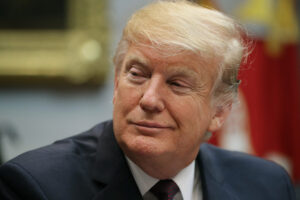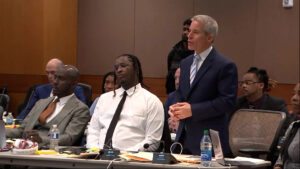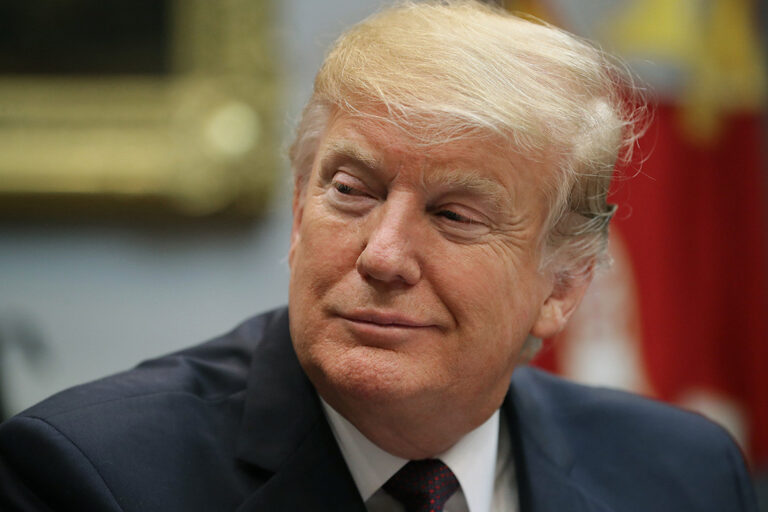In a potentially groundbreaking turn of events, key Supreme Court justices have raised significant concerns about the Securities and Exchange Commission’s (SEC) enforcement actions for securities fraud. This development suggests that the Supreme Court may be on the verge of curbing the agency’s power in a dispute that highlights the issue of the “administrative state.”
During a marathon two-hour session of arguments, the justices displayed openness to a crucial aspect of a lower court’s opinion. This opinion had already limited the SEC’s ability to enforce securities laws. However, the justices seemed less inclined to address broader aspects of the controversial ruling.
Conservative justices, in particular, voiced concerns over the SEC’s practice of allowing some disputes to be resolved by in-house administrative law judges instead of taking them to federal court. They argued that this approach infringes upon an individual’s Seventh Amendment right to a trial by jury.
Chief Justice John Roberts articulated his apprehension about an enforcement process with “no court” and “no jury.” He found it “curious” that an individual’s right to a jury trial could be determined solely by the government’s decision.
Justice Neil Gorsuch repeatedly emphasized the significance of the Seventh Amendment right, asserting, “We’d agree that the right to trial by jury, whether it’s criminal or civil, is a very important foundational freedom in American society.”
Justice Samuel Alito questioned whether “the right to a trial by jury simply goes out the window” when the government initiates an enforcement proceeding.
Another concern voiced by Roberts and Gorsuch was that the SEC now wields more authority in enforcement than it has in previous decades. Gorsuch quipped, “This is not your grandfather’s SEC,” alluding to the agency’s increased power.
Justice Brett Kavanaugh challenged the government’s argument that in-house proceedings were acceptable because they involved a “public right” subject to legislative control. He found it constitutionally odd that private suits trigger the right to a federal court and a jury, while government suits do not.
This case is part of a broader trend during this term, with a conservative-leaning majority scrutinizing the structure of government. This scrutiny arises from the belief that independent agencies, unaccountable to the public, have grown too powerful in recent years.
The heart of Wednesday’s discussion revolved around the controversial opinion from the 5th US Circuit Court of Appeals, known for its conservatism. The opinion covered Louisiana, Mississippi, and Texas, and litigants often file cases there hoping for eventual Supreme Court review.
The SEC comprises five members appointed by the president and confirmed by the Senate. The commission can enforce federal statutes through administrative enforcement proceedings seeking civil penalties or by bringing civil actions in federal court.
This case emerged in 2013 when the SEC initiated an enforcement action for securities fraud against George Jarkesy. Jarkesy had established two hedge funds with his advisory firm, Patriot28, attracting over 100 investors and managing approximately $24 million in assets.
An SEC administrative law judge found Jarkesy guilty of violating the Securities Act, Exchange Act, and Advisers Act for fraudulent actions. He was ordered to pay a civil penalty of $300,000 and to return nearly $685,000 in ill-gotten gains. Additionally, Jarkesy was barred from various securities industry activities, including serving as an investment adviser.
Jarkesy contested the proceedings, arguing that they violated the Constitution. Ultimately, he prevailed in the 5th Circuit, which ruled in his favor on three separate constitutional claims. The court held that certain SEC proceedings deprived individuals of their Seventh Amendment right to a civil jury. Furthermore, it found that Congress had improperly delegated legislative power to the SEC, granting the agency excessive authority to choose in-house administrative proceedings over district court suits.
While the court addressed these issues, it remained focused primarily on the Seventh Amendment right to a jury, suggesting that it might not delve into other aspects of the federal appeals court’s decision.
During the proceedings, Principal Deputy Solicitor General Brian Fletcher rejected claims that Congress had violated the Seventh Amendment by allowing in-house proceedings. He argued that Congress was within its rights to authorize an agency to impose civil penalties and administrative proceedings to enforce federal statutes.
S. Michael McColloch, an attorney representing Jarkesy, relied on historical context to argue that the use of in-house proceedings ran counter to the Founding Fathers’ intentions.
Liberal justices on the bench repeatedly pressed McColloch for the potential implications of his position on other agencies. Justice Elena Kagan pointed to historical events such as the depression, savings and loan crisis, and recessions, questioning whether Congress should be granted deference when granting the SEC greater powers.
A group of administrative law scholars supporting the SEC argued that a ruling against the SEC’s proceedings’ compliance with the Seventh Amendment would have a “devastating” impact on other agencies, including the Federal Trade Commission, Department of Labor, and the National Labor Relations Board.
In summary, the Supreme Court appears to be on the cusp of limiting the SEC’s authority, with a particular focus on the Seventh Amendment right to a trial by jury. This case has broader implications for the balance of power between government agencies and individuals. The Court’s decision could significantly impact the enforcement practices of various federal agencies.
As the Supreme Court contemplates the limits of the SEC’s authority in enforcement actions, it becomes evident that the Court’s decision in this case may reshape the landscape of government agencies’ powers. The focus on the Seventh Amendment right to a trial by jury highlights the fundamental constitutional questions at stake.




















+ There are no comments
Add yours